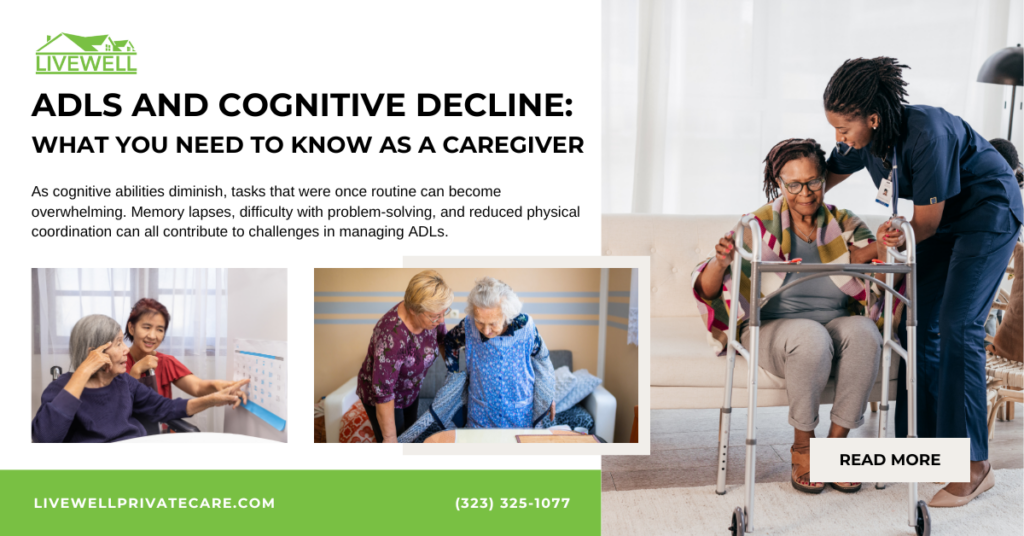ADLs and Cognitive Decline: What You Need to Know

Cognitive decline, often associated with conditions like dementia and Alzheimer’s disease, can significantly impact an individual’s ability to perform Activities of Daily Living (ADLs). These essential tasks—such as bathing, dressing, eating, and managing medication—are crucial for maintaining independence and quality of life. In this article, we look at how caregivers can best assist with ADLs and Cognitive decline.
As cognitive abilities diminish, once routine tasks can become overwhelming. Memory lapses, difficulty with problem-solving, and reduced physical coordination can all contribute to challenges in managing ADLs. For example, a person might forget the steps involved in dressing or struggle to prepare meals safely.
Here’s how caregivers can help with managing ADLS and Cognitive decline;
What Can Caregivers Do?
- Structured Routines: Establishing consistent daily routines can help reduce confusion and anxiety, making it easier for individuals to remember and complete tasks.
- Simplified Instructions: Instructions can help manage ADLS and cognitive decline by breaking down tasks into smaller, manageable steps. Offering clear, simple instructions can improve success in performing ADLs.
- Adaptive Tools: Utilizing adaptive devices, like button hooks for dressing or shower chairs for bathing, can help maintain independence while ensuring safety.
- Regular Monitoring: Close observation allows caregivers to assess changes in cognitive function and adjust care plans as needed.
The Importance of Early Intervention of ADLS and Cognitive Decline
Recognizing the early signs of cognitive decline and understanding its impact on ADLs can help caregivers implement supportive measures sooner, potentially delaying the progression of difficulties. For more insights on assessing ADLs and understanding their importance in caregiving, check out our previous article.
Caring for a loved one with cognitive decline is challenging, but with the right strategies, caregivers can help maintain dignity, independence, and quality of life for those affected.
